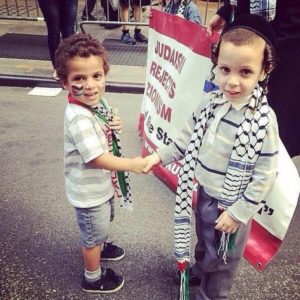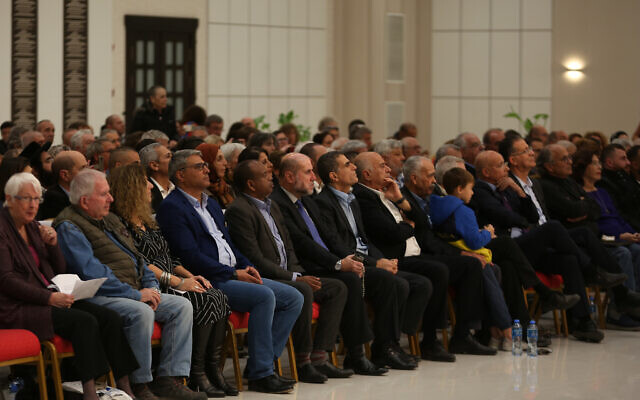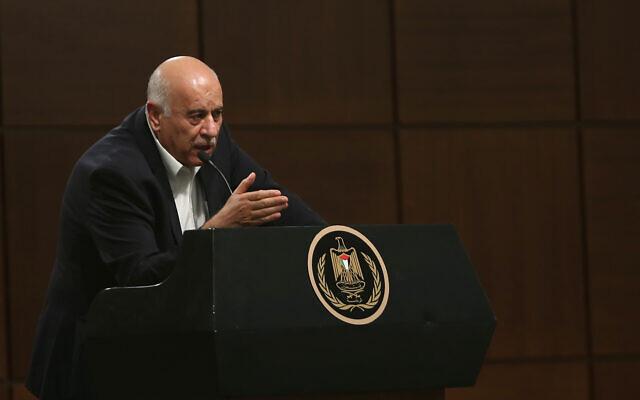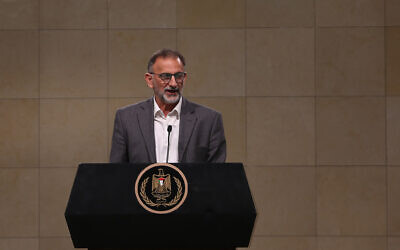THE TIMES OF ISRAEL: Hundreds of Israelis join Palestinians to ‘unify forces’ for peace
 Prosemitism means that Arabs and Jews should join together to erase and idea that we need an “US” or a “THEM.” Israel should see itself and be seen as part of a shared renaissance of the semitic word/ Arabs should benefit from the European heritage immigrants to Israel bring … remembering that before 1492 Jews and Arabs had built a great civilization in Andalusia. Jews should see Israel as part of what the Semitic world, with roots extending bak to Babylonia, once meant to all of mankind. I have dreamed of this all my life, a time when Jewish scicntists and scholars work together twith Arab scientists and scholars, a time when shared respect for the undeelying reaity of laws for society is celebrated in a Semitic world. Schmoel Moshe ben Ravii
Prosemitism means that Arabs and Jews should join together to erase and idea that we need an “US” or a “THEM.” Israel should see itself and be seen as part of a shared renaissance of the semitic word/ Arabs should benefit from the European heritage immigrants to Israel bring … remembering that before 1492 Jews and Arabs had built a great civilization in Andalusia. Jews should see Israel as part of what the Semitic world, with roots extending bak to Babylonia, once meant to all of mankind. I have dreamed of this all my life, a time when Jewish scicntists and scholars work together twith Arab scientists and scholars, a time when shared respect for the undeelying reaity of laws for society is celebrated in a Semitic world. Schmoel Moshe ben Ravii
By ADAM RASGON 29 November 2019,

Hundreds of Israeli activists participating in an event at the Palestinian Authority presidential headquarters in Ramallah on November 28, 2019. (Credit: Wafa)
The Israelis, many of who are veteran activists in left-wing groups and organizations, arrived at the PA presidential headquarters in large buses from Tel Aviv, Jerusalem and other parts of Israel. They were joined by several Palestinian officials, activists and religious leaders.
“I hope that my family, people and the leadership in Palestine, which I am part of, realize what the presence of hundreds of Israelis [here] on the anniversary of November 29 means,” Rajoub said, referring to the date that the United Nations in 1947 voted to accept a resolution that partitioned British-ruled Palestine into “independent Arab and Jewish states.” The day is celebrated in Israel as a first step toward the creation of the Jewish state a year later; in 1977 the UN declared it as the International Day of Solidarity with the Palestinian People.
“This is a significant message that there is an Israeli partner. I say to the Israelis: Understand us well. Many Palestinians only see Baruch Marzel, Smotrich and those faces who do not represent you,” he stated, alluding to right-wing Israeli politicians — Marzel from the hardline Otzma Yehudit party which failed to enter the Knesset in recent elections, and Transportation Minister Bezalel Smotrich who heads the National Union faction in the Jewish Home-National Union alliance.

Fatah Central Committee secretary-general Jibril Rajoub speaking to hundreds of Israeli activists at an event at the Palestinian Authority presidential headquarters in Ramallah on November 28, 2019. (Credit: Wafa)
Rajoub, a former PA security official who spoke in both Arabic and Hebrew, also called on the Israelis to work with the Palestinians against Israel’s military rule.
“Let’s unify our forces, join hands and fight together against the continuation of the occupation,” he said, adding that Israelis and Palestinians should also work together for mutual recognition and the establishment of a Palestinian state along 1967 borders.
Palestinian Authority Prime Minister Mohammed Shtayyeh was supposed to speak at the event, but ultimately did not attend.
Ziad Darwish, a member of the Palestine Liberation Organization Committee for Interaction with Israel Society, who organized the gathering along with the Israeli Peace NGO Forum said, without elaborating, that Shtayyeh was unable to attend because of “urgent circumstances.”
The gathering consisted mainly of speeches by Palestinian officials and Israeli activists and former Knesset members. It also included a short musical performance by Omer Koren, a Tel Aviv-based artist.
Yuval Rahamim, the head of the Peace NGO forum, a coalition of dovish Israeli organizations, said that the Israelis at the event wanted to do everything they could to bring an end to the Israeli-Palestinian conflict.
“We see the leaders and members of the Palestinian people as our partners,” he told the meeting. “We want to work together with all of our power to put an end to the troubles that the inhabitants of the land have been suffering for so many years.”
The last known round of peace talks between Israel and the Palestinians collapsed in May 2014; the most recent time PA President Mahmoud Abbas and Prime Minister Benjamin Netanyahu met for formal negotiations was in September 2010 in Jerusalem.
Rahamim admitted that the Israelis and Palestinians at the event did not embody the entirety of their societies.

Yuval Rahamim, Peace NGO Forum chief, speaking to hundreds of Israeli activists at an event at the Palestinian Authority presidential headquarters in Ramallah on November 28, 2019. (Credit: Wafa)
“Many from both of our peoples do not identify with this meeting. They do not identify with it because they have lost faith that there can be a peaceful solution between us. They are not here because they are afraid,” he said.
“But the delegation that came here does represent large numbers of citizens in Israel that still believe in continuing to work for reconciliation and mutual recognition,” he stated.
Darwish, a cousin of the late Palestinian poet Mahmoud Darwish and a fluent Hebrew speaker, said that some 400 Israelis participated in the gathering.
Iris Segev, whose 28-year-old son Nimrod was killed in the Second Lebanon War, said she hoped the Palestinians would achieve statehood.

Neturei Karta is an ultra-orthodox Jewish sect that opposed the existence of Ispe; until the messiah show up. Among other acts, these folks ahve appeared in Iran suporting very antisemitic meetings including holocause denial. Approximately ten members of Netutrei Karta, some wearing scarfs comprising the colors of the Palestinian flag, attended the event.
Most of the some 20 speeches won applause from the Israelis and Palestinians in the audience, but one of them by Rabbi Meir Hirsh, a leader of the anti-Zionist Neutrei Karta, was booed.
Hirsh, who referred to Israel as “the Zionist entity,” argued that Zionists and their leaders “have no right to represent the Jewish people or speak in its name.”
“The name, Israel, that they are using is a falsification like no other. The Zionists and their leaders do not belong to the Jewish people,” he said.
Darwish pushed back against the boos: “Excuse me. Gentlemen, we heard you…We are the hosts here and we decided who speaks.”
Just before the conclusion of the meeting, Mahmoud Habbash, Abbas’s religious affairs adviser, took the stage and said the speeches he heard from his Israeli guests had made the Palestinians more optimistic about the future.
“This wonderful talk gives us hope that tomorrow will be better,” he said. “With this visit and these statements of peace, you are changing the overall picture [of the situation] and working to change it.”
“You have penetrated through the wall and come to tell the Palestinians: We and all of you are striving to achieve one goal, which is peace based on justice, freedom and equality,” he said.